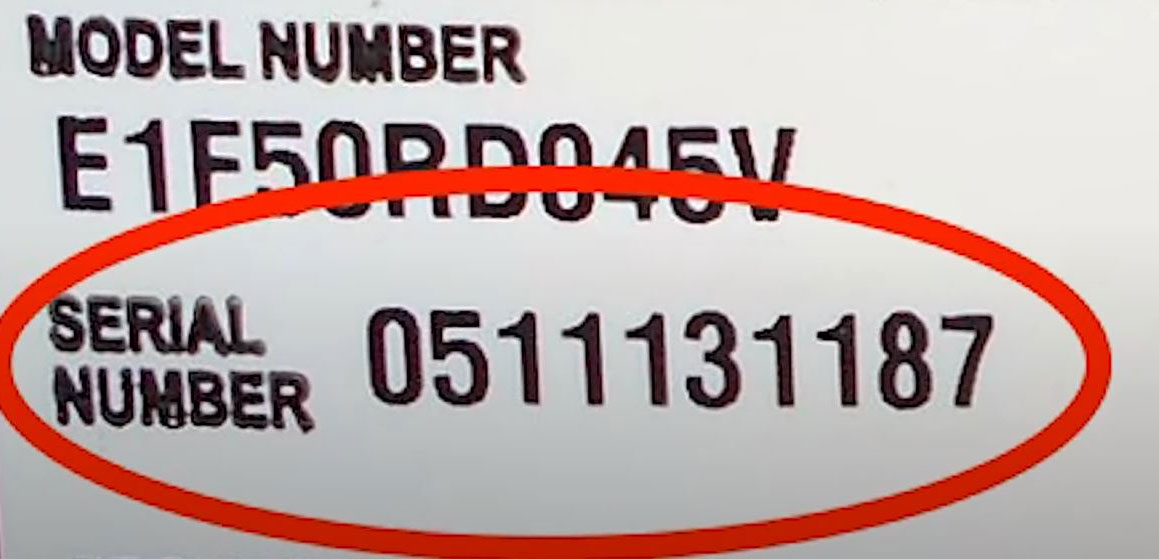How long have you had your current hot water system? Do you even know?
For those of us who haven’t moved into a brand new house, you’re likely running on a hot water system that’s well past its used-by date. Even if it isn’t written on the wall, your hot water system definitely has an expiration date. But how exactly do you know how long a hot water heater lasts? If you don’t know the answers to any of these questions, it could put you in a less-than-ideal place when it finally breaks down—you’re stuck without a warm shower until you can get a plumber. It might even turn your place into a swimming pool (unintended) when the hot water system floods. Read on to learn how long hot water systems hold up so you understand whether you need a new hot water system installed or when to expect to upgrade your system.
How Long Do Hot Water Systems Last?
A hot water system’s lifespan depends on different factors, like the type of heater, what powers it (the energy source), the water quality (hard water is bad for hot water systems), and how much care you take in looking after it. Most heaters last for about 8 to 12 years. But some hot water systems (a tankless hot water system, for example) can stick around for around 20 years if you give them enough care and regular maintenance. While we can’t give one exact number for how long hot water systems last, we can break down a few more aspects of the general hot water system lifespan. You want to be able to properly assess the state of your current system or understand the life expectancy of the new models that you’re interested in upgrading to. Read on.
Signs That Your Hot Water System Needs to Be Replaced
Your hot water system is an essential appliance in your home. Most people don’t give it a second thought until the hot water taps run dry. The last thing you’d want is a cold morning shower or end up with a wet house from a dud hot water system. Keep an eye out for these signs that could indicate that it’s time to make an informed decision on getting a new hot water system.
Recovery Time
How long does it take for the hot water system to reheat the water? If you notice a prolonged recovery time or, even worse, running out of hot water too quickly, it could be a sign that your hot water system is wearing out. This is a solid telltale sign of something not working as it should, like a broken heating element, for instance.
Age Matters
If your hot water system is pretty old—say, over ten years—it’s likely time to consider a replacement by a licensed plumber. Over the years of heavier usage, or even with normal use, for that matter, oxygen in the water causes tank corrosion. It doesn’t matter whether it’s an electric hot water system or a gas system – the hot water tank can be the defining factor in the health of your system. To find out the age of your hot water system, take a look at the serial number written on the manufacturer’s label; the first two digits stand for the month, and the next two stand for the year it rolled off the production line. The image below would be the 5th month (May) of 2011.

Check the manufacturer’s label and serial number to find out the hot water system’s lifespan.
Water Tank Leakage
Long periods of usage can lead to the hot water tank leaking, after some time. When you heat up the metal in the tank, it can expand and contract, which might cause your hot water tank to spring a leak. That’s one of the reasons it needs regular maintenance. If you spot water under your tank, that’s fairly strong proof of a leak. If you see this sign, there’s no question that your hot water system needs to be replaced. Whether you think it’s time for a new one or not, slapping in a water sensor in your hot water system is a great idea. These gadgets can give you a heads-up if any water leaks out of your hot water system. That gives you the chance to take action before it floods your home.
Noises and Rumbling Sounds
As your hot water system gets older, it’ll have sludge accumulating at the bottom of the tank. When it gets heated and reheated, this muck hardens, making a sound just like a pot boiling over. If you’re hearing a lot of pops or rumbles, it’s evidence that your hot water heater is on its last legs and needs swapping out for a new system ASAP.
Rust or Corrosion
The water tank is usually made of metal, and you’ll start noticing rust as time passes. Now, hot water system maintenance is out of the question at this point; you’d need to invest in a new system. It’s important to replace the old unit before it starts leaking (usually, this is what happens with corrosion). Keep an eye out for rust around the temperature and pressure relief valves, as well as the water inlets and outlets. Especially if your water tank’s a decade or more old, any of these elements showing up could very well mean it is time for a replacement by a licensed plumber.
Types of Hot Water Systems
Looking for a new hot water system? Or maybe you’re assessing the type of unit you already have – wondering whether it’s the most appropriate for your lifestyle. Below are the main types of hot water systems Aussies are installing in their homes:
Electric Hot Water System
Electric hot water systems, like a kettle, warm up the water with an element in the storage tank. But these aren’t the most energy-efficient options. Another electric option is the continuous flow or instantaneous hot water system. These systems heat up the water only when you twist the hot taps. Note: these types might need 3-phase power.
Gas Hot Water System
Gas systems are more like electric hot water systems, but they use a gas burner instead of an element. Plus, gas hot water systems are usually smaller because they can heat up the water faster. Like the electric hot water system option, you can also find continuous flow or instantaneous gas hot water systems, which are more energy-efficient and compact.
Solar Hot Water System
Solar hot water systems are a top choice for eco-conscious people as they’re more efficient than gas and electric systems. For the average Aussie household, hot water can chew up a fair chunk of your energy bill—about a quarter of the total. So it makes sense that it’s a common pick for new homes in Australia, as it taps into free sun power to warm your shower instead of relying on electricity or gas. You’ll need a set of solar panels on your roof, and even if it’s cloudy, you don’t have to worry; it’s still hooked up to electricity or gas.
Heat Pump
Now, even though it technically falls into the electric hot water system camp, the heat pump is also an energy-saver—even if it’s a bit more pricey to set up and a touch noisy. Think of it like a fridge but in reverse. This hot water system grabs heat from the air and throws it into your water, slashing your hot water bill big time. Head over to our “Brands” page to check out any of the water heaters mentioned above and find the top-selling hot water brands in Australia.
How Long Do Different Types of Hot Water Systems Last?
Hot water systems can last for a good stretch—anywhere from 8 to 20 years, depending on the type. With some regular maintenance, you can stretch out their usefulness indefinitely. Now, the different types of hot water systems have their own average lifespan:
- Gas hot water systems: Approx. 8–12 years.
- Electric hot water systems: Approx. 10–15 years.
- Solar hot water systems: Approx. 10 years.
- Heat pump hot water systems: Approx. 15 years.
- Tankless or continuous-flow hot water heaters: Approx. 20 years.
Verdict
You’ll generally get the longest lifespan out of a tankless or continuous flow hot water heater, but heat pumps and electric hot water systems can also be some of the longest functioning systems if treated well. While gas systems and solar hot water heaters tend not to last as long as the rest, it really depends on the make, model, and how you care for it. At the end of the day, the actual mileage you get out of your system depends on how well you treat it—keep up with regular maintenance, and it could last you for life. Also, factor in the water quality and pressure in your area; they play a part in how long hot water systems last.
Need Help with Your Hot Water?
If you’re in need of a new water heater, choosing your next system doesn’t have to be overwhelming. Reach out to our team; we’re here to give you fair advice—whether it’s about the top brands available, how to keep your energy bills in check, and which type of system is right for your home. We’re all about upfront prices and no dodgy practices. Our team will sort out the installation, and we won’t leave you hanging—our maintenance efforts mean your system stays working perfectly for the long haul. If you’re still unsure about which hot water system to go, get help finding the right system from our experts. For in-depth hot water system reviews, side-by-side comparisons, and handy buyer’s guides, browse our articles written by field experts who know their stuff when it comes to Aussie water heaters. Ready to upgrade to a reliable hot water system? It takes just a few minutes to get a quote today.

